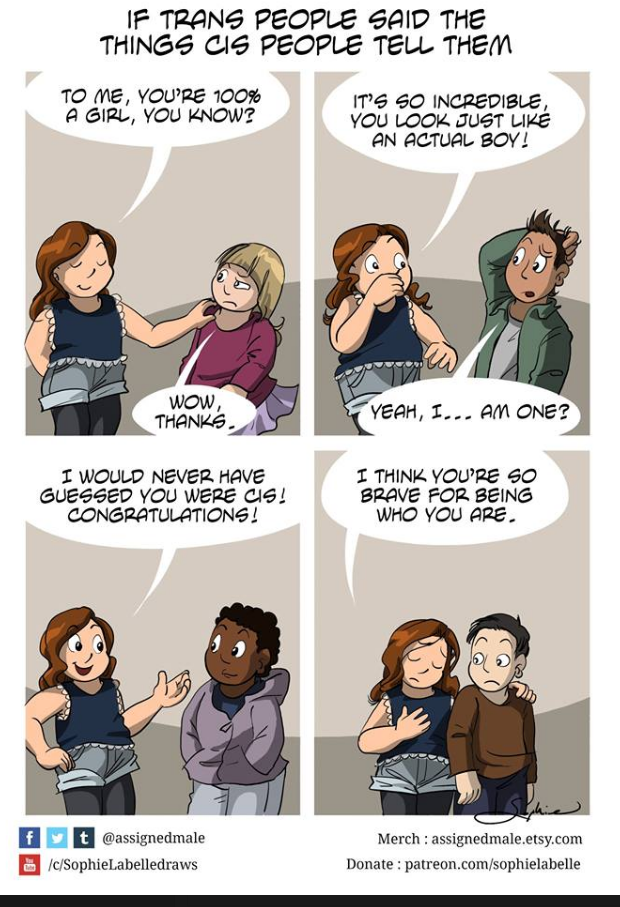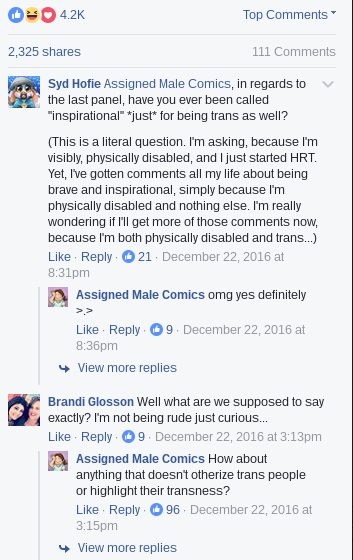Comic Nails What Transgender People Are Tired of Hearing

By:
Discrimination against transgender people takes a number of obvious forms, from exclusionary laws to higher risks of violent attacks.
But sometimes, the challenges trans people face can be more subtle.
Assigned Male Comics highlights how daily conversations can make transgender people feel like outsiders.
 Assigned Male Comics - facebook.com
Assigned Male Comics - facebook.com
The comic shows transgender people making the kind of well intentioned but insensitive comments they often hear from people who identify with the gender on their birth certificate.
Each of the panels addresses a misconception about life as a transgender person.
1) It shouldn't be assumed that trans people base their identity on what others think about them.
2) Comments on trans people looking like a "real" man or woman are inappropriate, even if meant as a compliment.
3) While trans people who face unique challenges, calling them "brave" simply for being themselves can make them feel singled out.
The comic generated more than 4,000 reactions and a thoughtful dialog in the comments section. When one commenter asked how cisgender people are supposed to talk to transgender people if they can't ask these things, LaBelle wrote that it's important not to "otherize" trans people:
 Facebook - facebook.com
Facebook - facebook.com
In a March 2016 interview for NPR's "All Things Considered," linguist Ben Zimmer described "othering" as "treating someone as outside of a particular dominant social group or social norm." Zimmer wrote that "othering" traces back to German philosopher Hegel, who "wrote in the early 19th century about consciousness of the self versus the other."
"[B]y the early 20th century in English writing, you see the other being turned into a verb to describe the act of making a person or a group be excluded from a particular norm," Zimmer wrote. "And that's been called othering."
"Otherizing" trans people can have consequences.
Amy Hunter, the transgender advocacy project coordinator for the American Civil Liberties Union (ACLU) of Michigan, wrote in an April 2016 piece that North Carolina's bathroom bill HB2 sought to "otherize" trans people by forcing them to use bathrooms and locker rooms associated with their biological sex at birth.
"Traces of the tactics used against women’s suffrage, desegregation, the Equal Rights Amendment and gay rights are all evident in the fight for dignity and respect for transgender people," Hunter wrote. "In all of these struggles, the groups seeking equal treatment under the law and in society were, like trans people, “othered” too. Women, for instance, were painted first as not being intelligent enough to have the vote, then as threats to the status quo."
